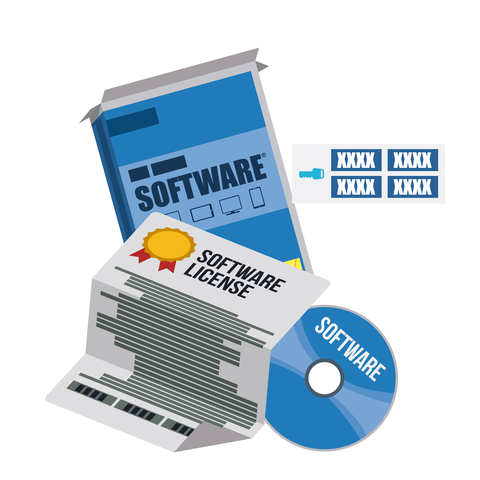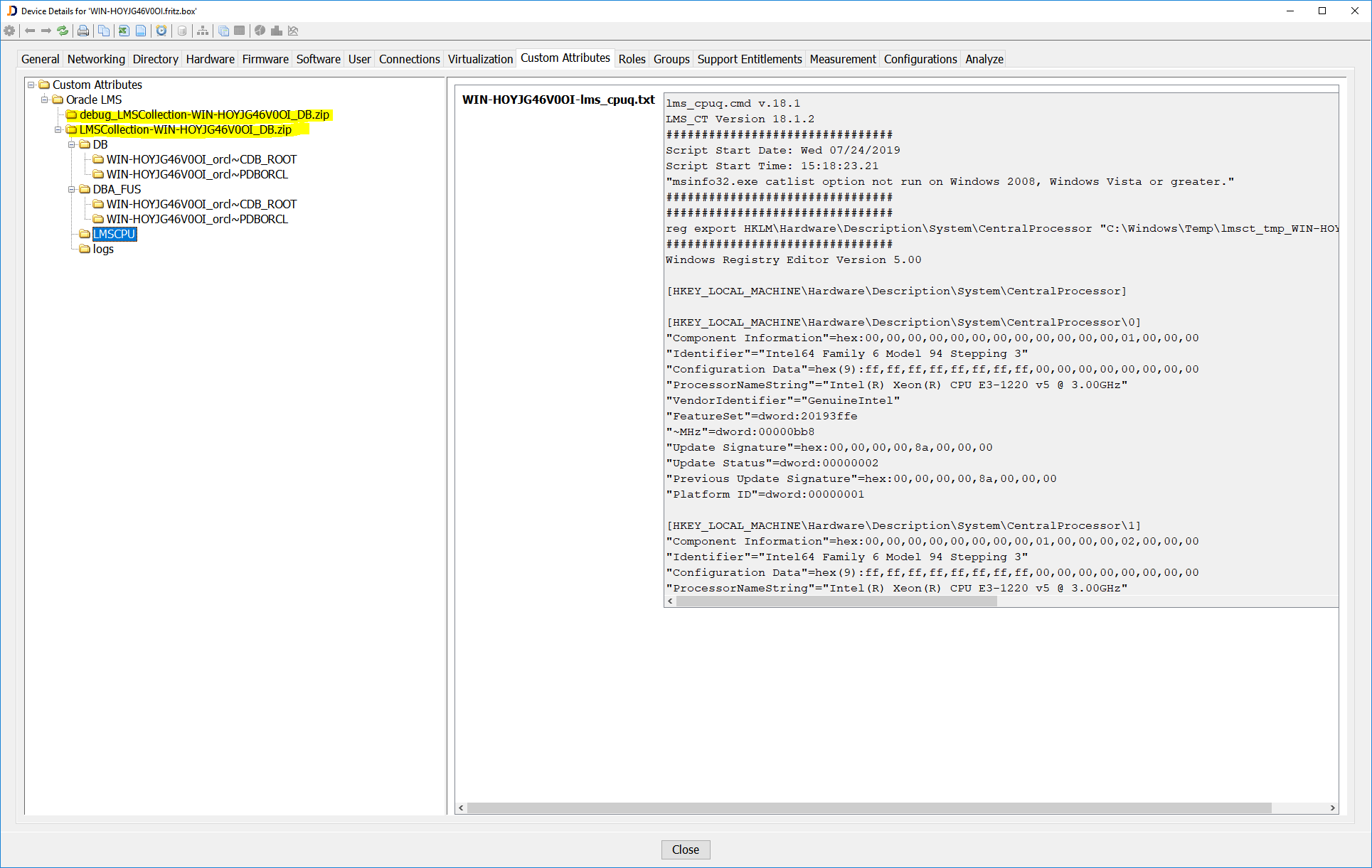Oracle LMS


Dear JDisc users,
when you are using Oracle database installations, then you are definitely aware of the licensing issues. Oracle’s licensing is pretty complex and complicated. When your company is large enough, then Oracle might announce an Oracle software audit. Companies who have gone through that know, that this is not a fun task.
Oracle requires specific information during the audit from all Oracle installations. You can gather this information either by using an Oracle certified software or you can use Oracle’s own data collection scripts. When using Oracle’s scripts, then you can be sure that you get exactly what Oracle needs. On the other hand, it is a pretty manual process.
Therefore, we implemented a new feature supporting Oracle audits using the original Oracle LMS scripts. We cannot redistribute the Oracle LMS scripts, since the scripts are copyrighted and can only be used by the customer itself or the service provider delivering the audit. However, we have created an integration where you import the LMS scripts.
That’s the way it works:
- copy the Oracle LMS zip file containing the scripts to the JDisc Discovery server
- tell the JDisc Discovery server within its configuration where to find the Oracle LMS scripts.
- Once JDisc Discovery finds an Oracle database installation during the discovery, it copies the Oracle LMZ ZIP file to the target computer, unzips the file and runs the scripts.
- Finally, it collects the ZIP file containing the result files and stores the result files as custom attributes within our database.
- A easy to use export function exports collected information for all servers in a separate ZIP file
The script output can be reviewed within the custom attributes section for each audited device. You find the directory hierarchy on the left and the actual file contents in the main area.

What we are doing is simplify the deployment and actual data collection for the Oracle LMS scripts. What we don’t do is to analyze the output and provide recommendations regarding the licensing. This is up to a service provider or a consulting company.
Hope that you might find this function useful once you are audited by Oracle!
Cheers,
Thomas
